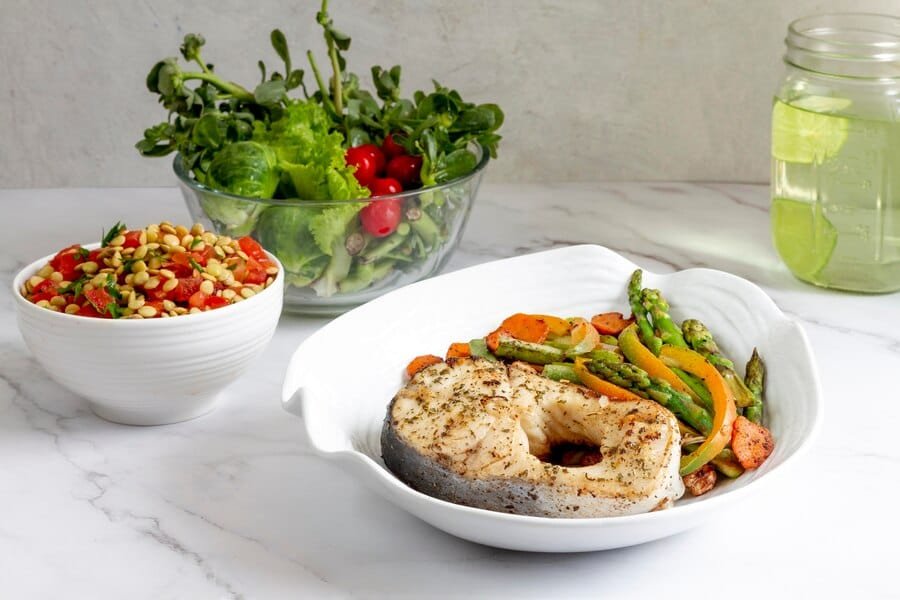
Between managing work commitments, children’s activities, and household responsibilities, many families struggle to put nutritious meals on the table during hectic weeknights. This comprehensive guide will explore practical, time-saving dinner solutions that don’t compromise on taste or nutrition, helping busy parents reclaim their weeknight dinner routine.
Read Also:
- Quick Weeknight Dinner Ideas for Busy Families: A Comprehensive Guide to Stress-Free Meals
- Protein-Packed Breakfast Ideas: The Ultimate Guide to Starting Your Day Strong
- The Ultimate Guide to Crafting Perfect Flaky Pie Crusts: A Baker’s Secret Recipe and Techniques (2024)
- The Ultimate Guide to Creating Perfect Holiday Sugar Cookies with Show-Stopping Royal Icing Designs: Tips, Tricks, and Family Traditions for 2024
Understanding the Weeknight Dinner Challenge
Modern families face unprecedented time pressures that make traditional meal preparation increasingly challenging. According to a recent study by the American Heart Association (heart.org), approximately 56% of American families report having dinner together fewer than five times per week, with lack of time cited as the primary barrier. The good news is that with proper planning and smart strategies, creating wholesome family dinners doesn’t have to be overwhelming.
The Power of Meal Planning
One of the most effective ways to streamline weeknight dinners is through strategic meal planning. The Food Network (foodnetwork.com) emphasizes that spending just 30 minutes planning meals for the week can save hours of time and reduce stress significantly. Consider dedicating Sunday afternoons to planning the week’s menu, creating a grocery list, and doing basic prep work. This approach not only saves time but also reduces food waste and helps maintain a balanced diet throughout the week.
Essential Time-Saving Kitchen Equipment
Investing in the right kitchen tools can dramatically reduce meal preparation time. Consumer Reports (consumerreports.org) recommends several time-saving appliances that every busy family should consider. The Instant Pot has revolutionized weeknight cooking by combining multiple cooking functions in one device. A high-quality food processor can cut vegetable prep time in half, while a programmable slow cooker allows you to start dinner in the morning and return home to a perfectly cooked meal.
15-Minute Dinner Solutions
Contrary to popular belief, quick meals don’t have to mean processed foods. Cooking Light (cookinglight.com) offers numerous recipes that can be prepared in 15 minutes or less while maintaining high nutritional value. For instance, a protein-packed quinoa bowl with pre-cooked quinoa, canned beans, pre-cut vegetables, and a quick homemade dressing provides a balanced meal in minutes. Similarly, whole-grain pasta tossed with fresh vegetables and lean protein can be assembled quickly while meeting all major nutritional requirements.
The Sheet Pan Dinner Revolution
Sheet pan dinners have gained popularity among busy families, and for good reason. According to Epicurious (epicurious.com), these one-pan wonders minimize cleanup while maximizing flavor. By combining proteins and vegetables on a single sheet pan and roasting them together, you can create countless variations of complete meals. The key is choosing ingredients with similar cooking times or adding them to the pan in stages to ensure everything cooks properly.
Make-Ahead Strategies That Actually Work
Better Homes & Gardens (bhg.com) suggests that the secret to successful weeknight dinners often lies in what you can prepare in advance. Spending a few hours on weekend meal prep can set you up for success throughout the week. Consider preparing versatile bases like grilled chicken, roasted vegetables, or cooked grains that can be mixed and matched for different meals. These components can be stored in the refrigerator and quickly assembled into fresh, different combinations each night.
Smart Shortcuts Without Sacrificing Quality
While completely from-scratch cooking might be ideal, Real Simple (realsimple.com) acknowledges that strategic use of convenience items can be a lifesaver for busy families. The key is choosing minimally processed options. Pre-cut vegetables, rotisserie chickens, and pre-cooked grains can significantly reduce preparation time while maintaining nutritional value. Look for products with simple, recognizable ingredients and combine them with fresh components for quick, wholesome meals.
Freezer-Friendly Family Favorites
The Kitchn (thekitchn.com) emphasizes the importance of having a well-stocked freezer for busy weeknights. When preparing family favorites like lasagna, chili, or chicken pot pie, consider making double batches and freezing portions for future meals. Proper labeling and rotation of frozen meals ensure nothing goes to waste. Many dishes can go straight from freezer to oven, providing a homemade meal with minimal weeknight effort.
Getting Children Involved in Meal Preparation
Parents Magazine (parents.com) suggests that involving children in meal preparation not only helps with the workload but also teaches valuable life skills and may encourage picky eaters to try new foods. Age-appropriate tasks like washing vegetables, measuring ingredients, or assembling simple dishes can make meal preparation more efficient while creating valuable family bonding time.
Utilizing Healthy Convenience Foods
While processed foods often get a bad reputation, EatingWell (eatingwell.com) notes that some convenience foods can be part of a healthy diet when chosen carefully. Look for products with minimal added sugars, sodium, and preservatives. Items like pre-cooked lentils, frozen vegetables, and canned fish can be valuable additions to your weeknight dinner arsenal when combined thoughtfully with fresh ingredients.
The Role of Batch Cooking
Serious Eats (seriouseats.com) advocates for batch cooking as a strategy to manage weeknight meals efficiently. Spending a few hours cooking larger quantities of versatile ingredients like grilled vegetables, marinara sauce, or shredded chicken can provide the building blocks for multiple meals throughout the week. These components can be mixed and matched to create different dishes, preventing meal fatigue while saving time.
Incorporating Plant-Based Options
The growing popularity of plant-based meals has led to an explosion of quick and easy vegetarian and vegan dinner options. According to Forks Over Knives (forksoverknives.com), plant-based meals often require less preparation time and can be more cost-effective than meat-based dishes. Keeping ingredients like canned beans, whole grains, and fresh vegetables on hand allows for quick assembly of nutritious meatless meals.
Technology Solutions for Meal Planning
Modern technology offers numerous tools to streamline meal planning and preparation. Apps recommended by CNET (cnet.com) can help with everything from meal planning and grocery list creation to recipe organization and smart shopping. Many of these apps also provide nutritional information and can help ensure balanced meal planning throughout the week.
Building a Reliable Recipe Collection
Every busy family needs a core collection of reliable, quick recipes that can be prepared with minimal effort. Bon Appétit (bonappetit.com) suggests starting with 10-15 versatile recipes that can be customized based on available ingredients and family preferences. These tried-and-true recipes become valuable resources on particularly busy nights when decision fatigue is high.
The Importance of Flexible Meal Planning
While meal planning is crucial, Martha Stewart Living (marthastewart.com) emphasizes the importance of building flexibility into your weekly menu. Having a few backup meals that can be prepared from pantry staples ensures you’re prepared for unexpected schedule changes or when the planned meal isn’t feasible. This approach reduces stress and prevents last-minute takeout orders.
Creating a Well-Stocked Pantry
Good Housekeeping (goodhousekeeping.com) stresses that maintaining a well-stocked pantry is fundamental to quick weeknight cooking. Keep versatile ingredients like whole grain pasta, canned tomatoes, broths, and a variety of spices on hand. Combined with fresh ingredients, these pantry staples can form the basis of countless quick meals.
Conclusion
Successfully managing weeknight dinners in a busy household requires a combination of planning, preparation, and flexibility. By implementing these strategies and building a personalized approach that works for your family’s schedule and preferences, you can create nutritious, enjoyable meals without spending hours in the kitchen. Remember that perfection isn’t the goal – finding a sustainable approach that works for your family while maintaining the importance of shared mealtimes is what matters most.
Through thoughtful planning, smart shopping, and strategic use of time-saving techniques, busy families can enjoy healthy, home-cooked meals even on the most hectic weeknights. The key is finding the right balance of preparation and flexibility that works for your unique situation while maintaining focus on the ultimate goal: bringing the family together around the dinner table.


